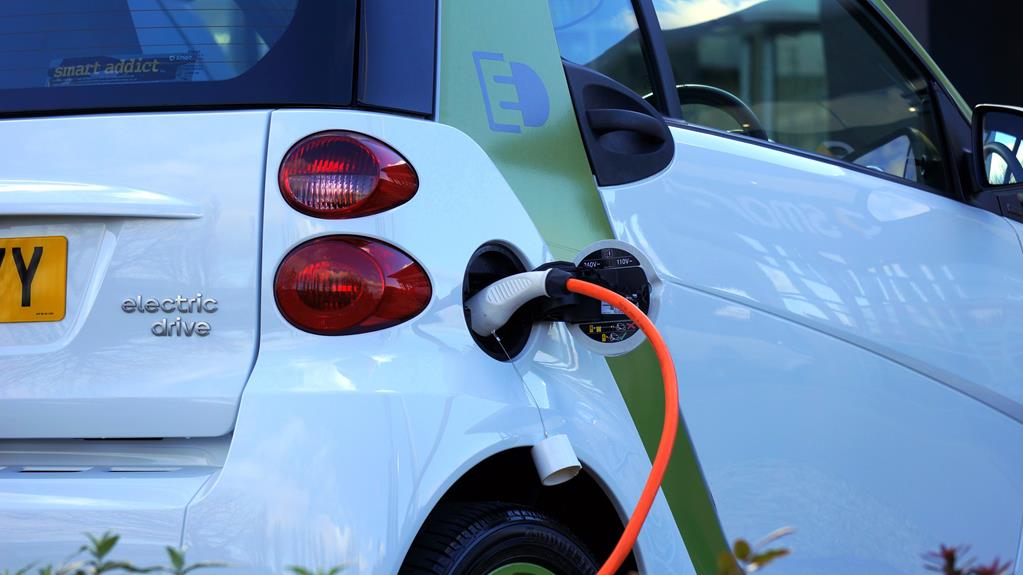Are Reconditioned Car Batteries Worth It
Did you know that reconditioned car batteries can cost up to 50% less than new ones?
Are Reconditioned Car Batteries Worth It
This significant cost savings may make you wonder if it's worth considering a reconditioned battery for your vehicle.
Are Reconditioned Car Batteries Worth It
While the idea of saving money may be appealing, there are several factors to consider before making a decision.
Are Reconditioned Car Batteries Worth It
In this discussion, we will explore the reliability of reconditioned car batteries, compare their lifespan to new batteries, examine the environmental impact of choosing reconditioned batteries, and provide tips for ensuring their quality.
Are Reconditioned Car Batteries Worth It
So, before you make a hasty decision, let's dig deeper into the world of reconditioned car batteries and find out if they are truly worth it.
Are Reconditioned Car Batteries Worth It
Cost Savings of Reconditioned Car Batteries
Are Reconditioned Car Batteries Worth It
Save money with reconditioned car batteries. If you're looking to belong to a community of savvy car owners who want to save some cash, then reconditioned car batteries might just be the answer you've been searching for. One of the major benefits of opting for a reconditioned battery is the significant cost savings it offers. Reconditioned batteries are typically priced much lower than brand new ones, allowing you to keep more money in your pocket. This is particularly appealing if you're on a tight budget or simply want to be smart with your spending.
Are Reconditioned Car Batteries Worth It
By choosing a reconditioned battery, you can enjoy the benefits of a fully functional battery without breaking the bank. These batteries undergo a rigorous reconditioning process, where any defects or issues are addressed to ensure optimal performance. This means that you don't have to compromise on quality just to save some money. Reconditioned batteries are reliable and provide the power your car needs to run smoothly.
Moreover, reconditioned car batteries are environmentally friendly. By giving a second life to a battery that would have otherwise ended up in a landfill, you're doing your part in reducing waste and contributing to a more sustainable future. With reconditioned batteries, you can save money and be a part of a community that values both savings and environmental responsibility.
Factors Influencing the Reliability of Reconditioned Batteries
If you're considering reconditioned car batteries, it's important to understand the factors that influence their reliability.
The reliability of a reconditioned battery depends on several key factors. First, the quality of the reconditioning process is crucial. Reputable companies and technicians follow strict protocols to ensure that the battery is restored to its optimal performance.
The expertise and experience of the technician are also important in determining the reliability of the battery. A skilled technician can identify any underlying issues and address them effectively, ensuring that the battery performs reliably.
Additionally, the age and condition of the battery before reconditioning play a significant role. Batteries that are relatively new and in good condition are more likely to be reliable after reconditioning. However, older batteries or those that have been poorly maintained may have reduced reliability, even after reconditioning.
Lastly, the quality of the materials used in the reconditioning process is crucial. High-quality components and chemicals ensure that the battery functions optimally and has a longer lifespan.
Comparing the Lifespan of Reconditioned and New Car Batteries
When comparing the lifespan of reconditioned and new car batteries, it's important to consider their overall performance and longevity.
While new car batteries are known for their reliability and longer lifespan, reconditioned batteries can offer a cost-effective alternative. Reconditioned batteries go through a process that aims to restore their performance and extend their lifespan. However, it's essential to understand that the lifespan of reconditioned batteries may vary depending on their initial condition and the quality of the reconditioning process.
New car batteries typically come with a warranty that guarantees their performance for a specific period. On average, they can last anywhere between three to five years, depending on various factors such as usage, maintenance, and climate conditions.
Reconditioned batteries, on the other hand, may have a shorter lifespan compared to new batteries. While some reconditioned batteries can last up to three years or more, others may only last for a year or two.
To maximize the lifespan of a reconditioned battery, it's crucial to ensure that it has been properly reconditioned by a reputable service provider. Regular maintenance and proper usage can also help extend its lifespan. It's advisable to consult with professionals or seek recommendations from trusted sources when considering a reconditioned battery, as this can help ensure its overall performance and longevity.
Environmental Impact of Choosing Reconditioned Batteries
Considering the impact on the environment is an important factor when choosing reconditioned batteries over new ones. As someone who desires belonging, you're likely concerned about the well-being of our planet and want to make choices that align with your values.
Opting for reconditioned car batteries can significantly reduce your carbon footprint and contribute to a more sustainable future.
By choosing reconditioned batteries, you're diverting used batteries from ending up in landfills, where they can release harmful chemicals and contribute to soil and water pollution. Reconditioning involves refurbishing old batteries, making them functional again and extending their lifespan. This process reduces the need for new battery production, which in turn conserves natural resources and reduces greenhouse gas emissions from manufacturing.
In addition, reconditioned batteries help to minimize the demand for raw materials, such as lead and lithium, which are used in battery production. The extraction and processing of these materials can have severe environmental impacts, including deforestation, water pollution, and habitat destruction. By choosing reconditioned batteries, you're supporting the circular economy by giving a second life to existing resources.
It is worth noting that not all reconditioned batteries are created equal. It's essential to choose reputable suppliers who follow strict quality control measures and use environmentally friendly processes. By doing so, you can ensure that your decision to opt for reconditioned batteries is truly beneficial for the environment.
Tips for Ensuring the Quality of Reconditioned Car Batteries
To ensure the quality of reconditioned car batteries, follow these tips.
First and foremost, always purchase from reputable sellers or authorized dealers. This will give you peace of mind knowing that you're getting a reliable and tested product. Additionally, make sure to check the warranty offered by the seller. A good warranty indicates that the seller stands behind the quality of their reconditioned batteries.
Next, it's important to inspect the battery before purchasing. Look for any signs of damage, such as leaks or corrosion. Additionally, check the manufacturing date to ensure that the battery isn't too old. Older batteries may have reduced capacity and may not last as long.
When you install the reconditioned battery, it's crucial to follow the manufacturer's instructions. This includes properly connecting the battery terminals and ensuring a secure fit. Improper installation can lead to electrical issues and potential damage to your vehicle.
Lastly, regular maintenance is key to prolonging the life and quality of your reconditioned battery. Keep the battery clean and free from dirt or debris. Regularly check the battery's charge level and use a battery charger if necessary.
Frequently Asked Questions
Are Reconditioned Car Batteries as Reliable as New Batteries?
Reconditioned car batteries may not be as reliable as new ones. You might want to consider the potential risks and benefits before making a decision.
Can Reconditioned Car Batteries Save Me Money in the Long Run?
Reconditioned car batteries can potentially save you money in the long run. They are a more affordable option compared to new batteries and can still provide reliable performance if properly maintained.
What Are the Common Factors That Can Affect the Reliability of Reconditioned Car Batteries?
Common factors, such as age, usage, and maintenance, can affect the reliability of reconditioned car batteries. It's important to consider these factors when deciding if they are worth it for you.
How Does the Lifespan of Reconditioned Car Batteries Compare to That of New Batteries?
When comparing the lifespan of reconditioned car batteries to new ones, you'll find that reconditioned batteries may not last as long. It's something to consider when deciding if they're worth it for you.
What Are Some Tips for Ensuring the Quality of Reconditioned Car Batteries?
To ensure quality in reconditioned car batteries, inspect for physical damage or leakage, check the manufacturing date, and ask for a warranty. Remember, "you get what you pay for," so choose wisely for long-lasting performance.
Conclusion
In conclusion, opting for reconditioned car batteries can provide significant cost savings without compromising reliability.
By considering factors such as the lifespan and environmental impact, one can make an informed decision that benefits both their wallet and the planet.
Ensuring the quality of reconditioned batteries through proper inspection and maintenance is key.
Overall, choosing reconditioned batteries offers a sophisticated way to meet your car's power needs while being mindful of your budget and the environment.

